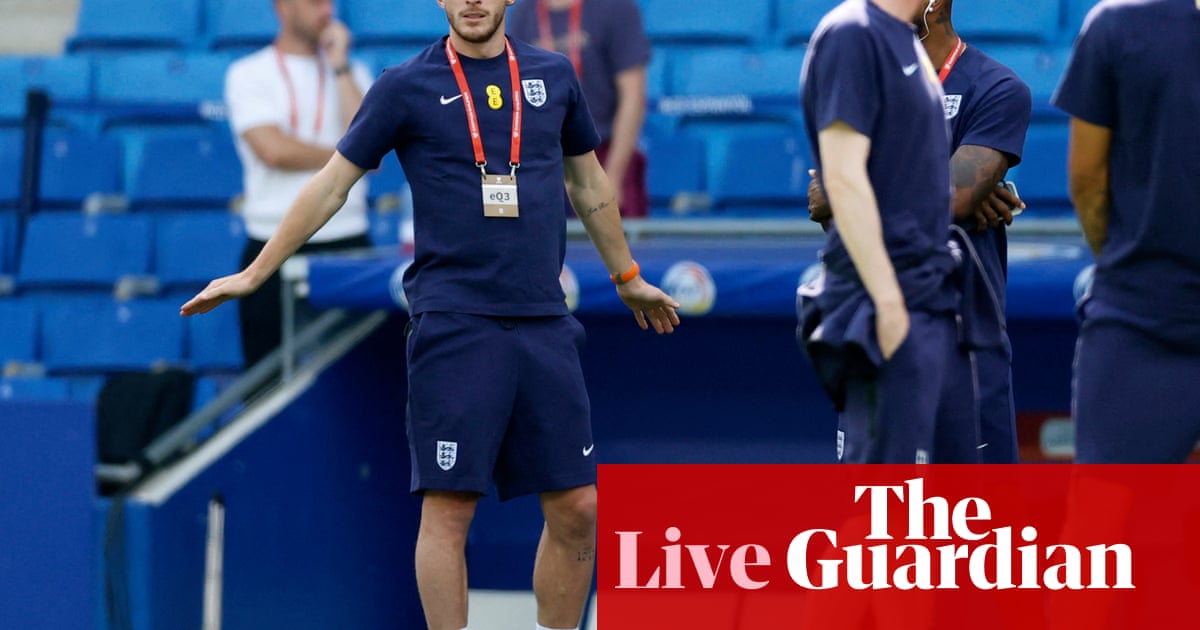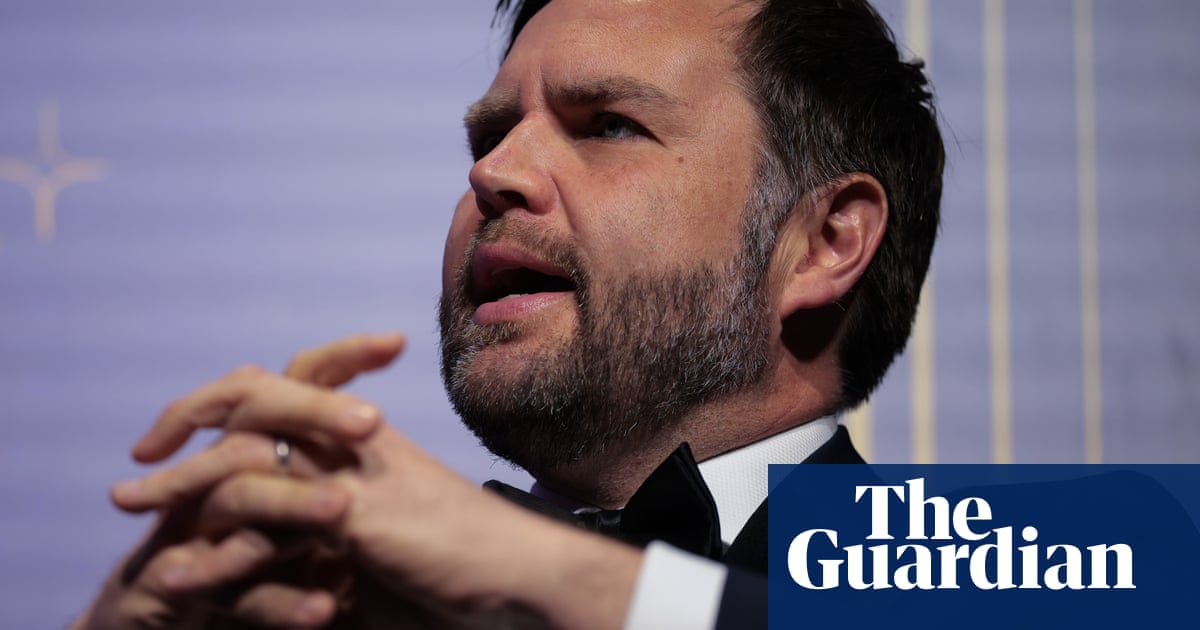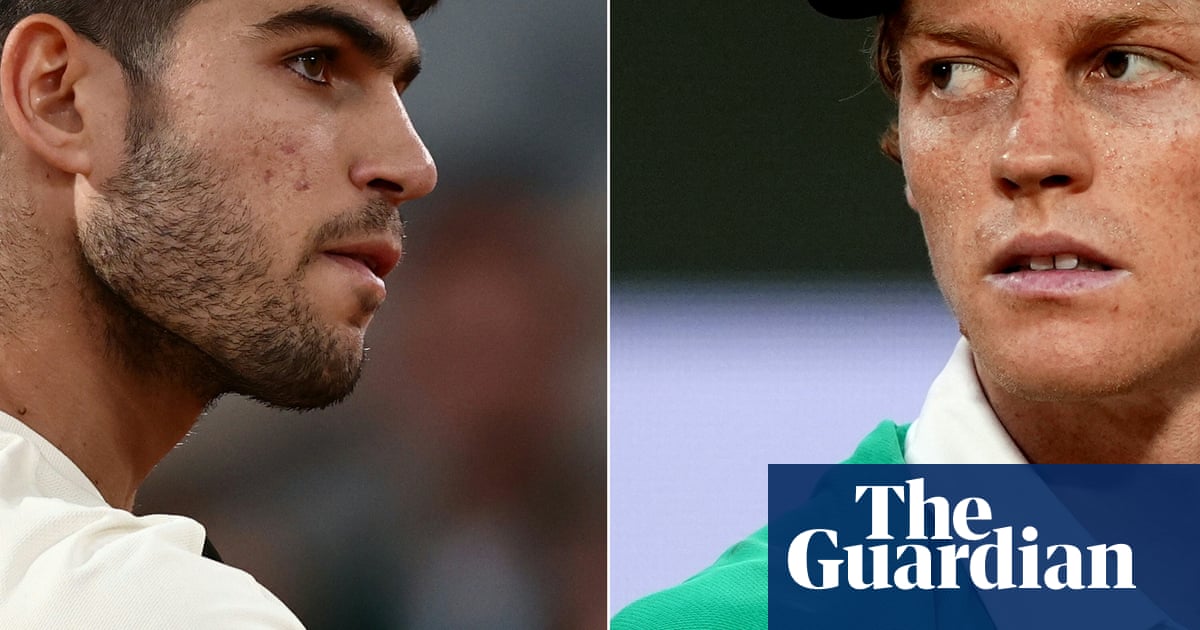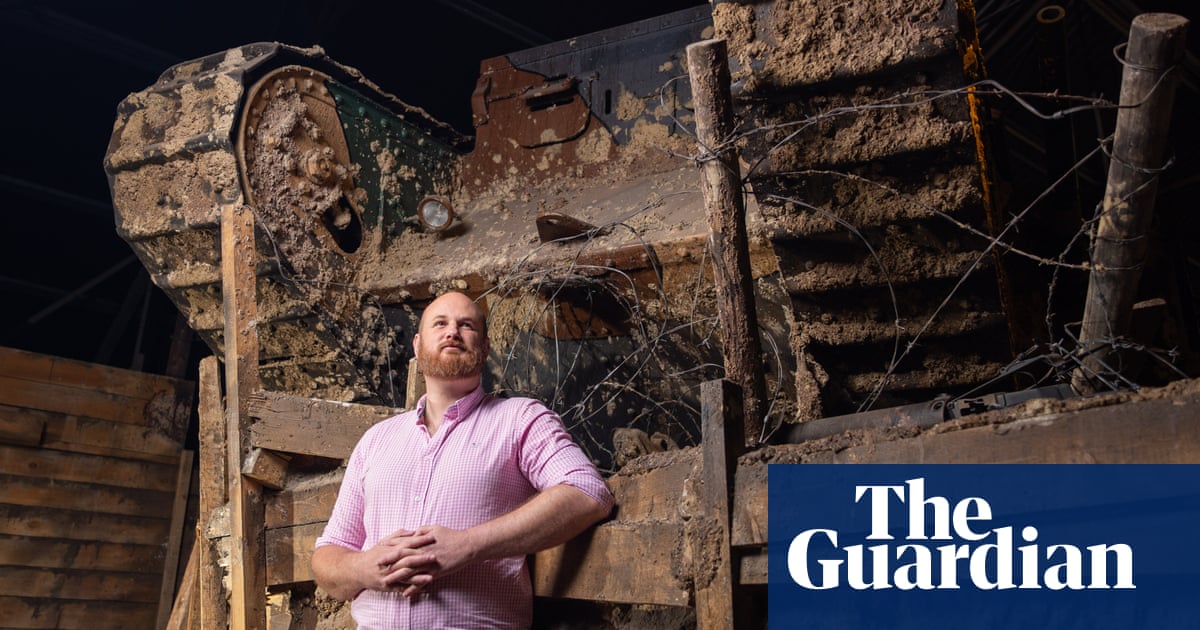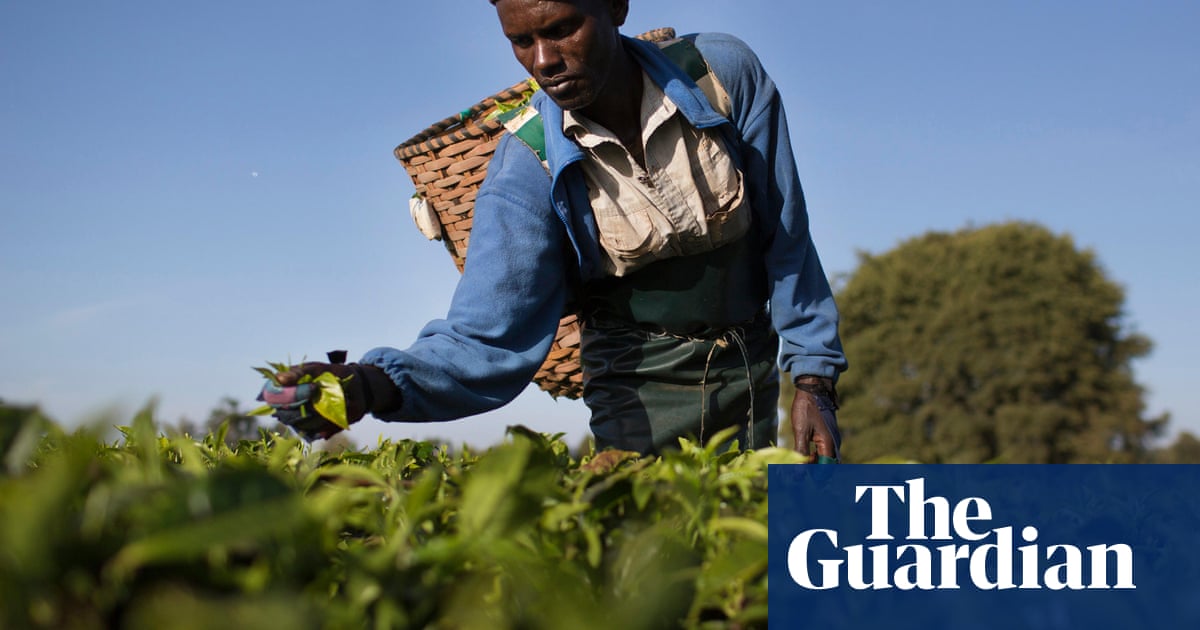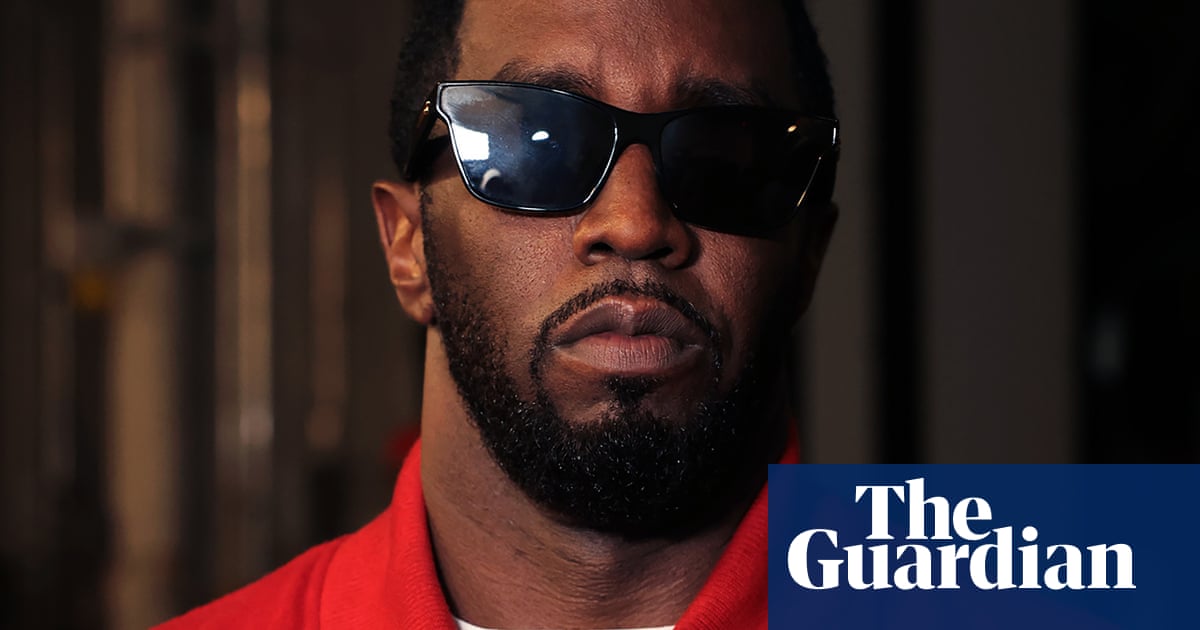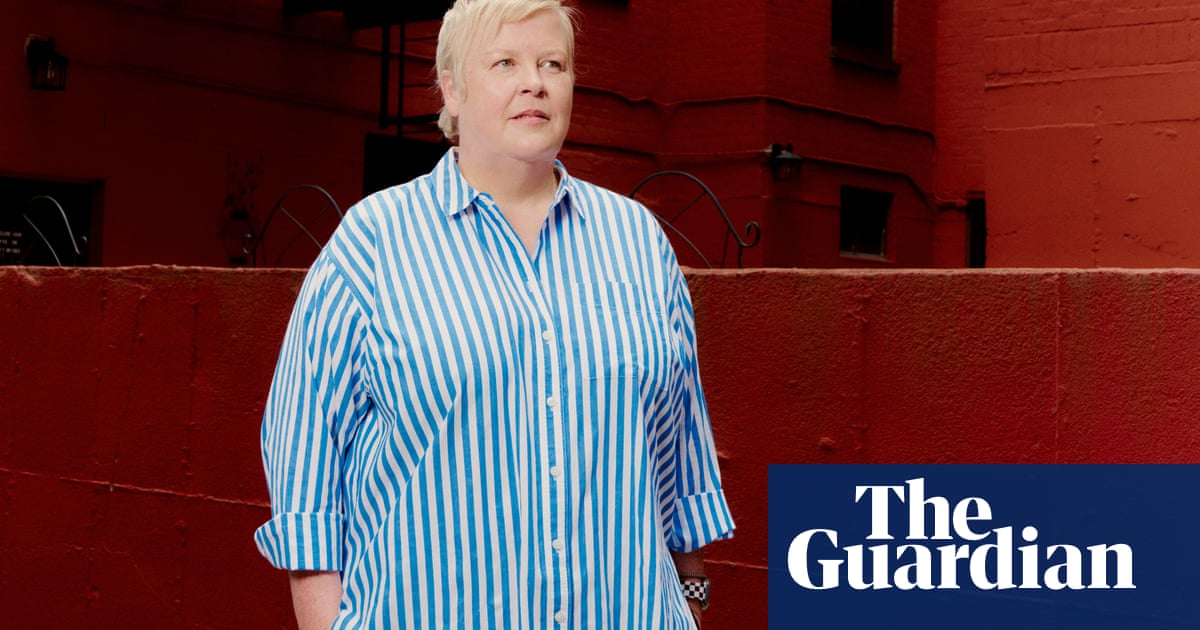“There was always some sort of allegiance with Lord’s when we were growing up in Langa,” Temba Bavuma says of his childhood as a township boy living just outside Cape Town. Bavuma, the first black cricketer to captain South Africa, will lead his country against Australia in the World Test Championship final, which begins at Lord’s on Wednesday.
In the quintessentially English surroundings of Arundel, the 5ft 3in Bavuma looks as if he has gone back to being a kid in the dusty townships. “In Langa we had a four-way street,” he says, his face crinkling with the memories. “On the right-hand side of the street the tar wasn’t done so nicely and we used to call it Karachi because the ball would bounce funny. The other side was the MCG [Melbourne Cricket Ground] but my favourite section of the street was clean, and done up nicely, and we called it Lord’s because it just looked better. So, as a kid of 10, I already had that dream of playing at Lord’s.”
Bavuma is 35 and he has long carried a burden of responsibility. In 2017 he was the first black South African to be chosen as a Test batter and, six years later, he became even more of a pioneer when appointed captain. He has won eight and drawn one of his nine Tests leading the Proteas. He will soon discuss the odds South Africa have overcome to reach the Test final, ahead of the economic powerhouses India and England, but we linger over the lessons of Langa.
The sidestreet nicknamed the MCG was favoured by the older boys. “I’d be playing against 15-year-olds who preferred it because it had a downhill, which helped them when bowling fast. That’s where my competitiveness comes from. Even at 12, you have to front up to the older guys. They’re not going to bowl any slower, or give you half-volleys, just because you’re younger.”
Danger, steeped in South African township life, loomed over those innocent games of cricket. People were murdered in Langa but, as Bavuma says, “during the day it was OK. It was more at night where all the action happened – if we can call it that. But Langa is rich in its sporting culture and it gave us that space where we found respect and support from the community.”
When he was “around 10” his prodigious talent meant he was offered a scholarship at SACS, one of South Africa’s most privileged white schools. “It was tough integrating within the system, learning and understanding the [white] culture,” Bavuma says, “but it helped that I came in as a cricketer. In terms of making friends, it was a bit easier. But I had to learn about discipline and etiquette, which are such big things in that culture.
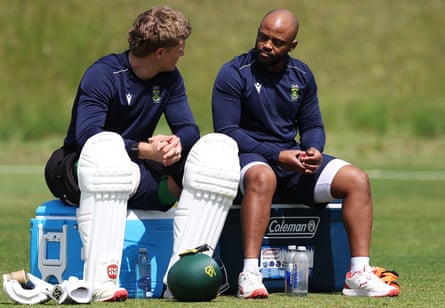
“I also had to learn confidence. Can you imagine taking a child from the township into a system where, basically, everything is there. There were always doubts. Am I good enough to be here? Do I deserve this opportunity? I always felt the need to prove myself.”
Bavuma recalls being one of only three black boys at primary school and he would commute every day from Langa to the plush streets in the hushed shadow of Table Mountain. “As a kid you are quite ignorant,” he says when describing the jolting contrast. “You see things but it’s very hard for you to comprehend – even if the disparity is quite obvious. It would really hit me when SACS played against Langa. At that time Langa was strong in cricket and I would be playing against my friends that I grew up with in the township.
“I would be a SACS boy who’d been there two years. By then you know how to conduct yourself at lunch. You’re not going to dish up a big plate whereas my friends from Langa would have huge plates. We’d laugh about it but, when you think about it, the Langa boy would be wondering when is he going to get another opportunity to eat food like that?”
When his family moved to Johannesburg, Bavuma transferred to another prestigious school, St David’s, which has recently named its cricket ground after him. “By the time I went to St David’s I was one of the boys. I understood the whole culture and I was fluent and confident in English and my studies. But it took time.”
It also took Bavuma time to master Test cricket. He was the first black South African to hit a Test hundred, against England in January 2016. Seven years and two months passed before he finally reached his second Test century – 172 against West Indies in March 2023. The key difference was Bavuma had just become South Africa’s captain. In that role he has an average of 57.78 with the bat – after seven 50s and three hundreds. Before the captaincy his average was 34.53.
“You obviously grow in confidence,” he says of the improvement. “The added responsibility as well, getting pushed up the order, is something I thrived on. But most of all I just understand my game and I don’t try playing like anyone else.”
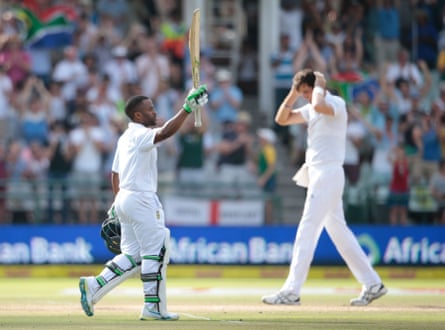
Michael Vaughan and others have questioned South Africa’s presence at Lord’s – with the former England captain suggesting that Bavuma’s men face Australia “on the back of beating pretty much nobody” and “don’t warrant being in the World Test Championship final”. This sidesteps the inequalities that mean South Africa have played the fewest Tests in this current cycle.
Without the injured Bavuma they sent a skeleton squad to New Zealand, and effectively surrendered that series, as key players were required to play in a domestic Twenty20 competition that brought in desperately needed funds. They needed to win their last seven Tests in a row – beating West Indies away, sweeping a two-match series in Bangladesh and then winning four Tests at home against Sri Lanka and Pakistan.
South Africa looked imperious apart from the second innings of the first Test against Pakistan at Centurion. Chasing a modest 148 on a challenging wicket, Bavuma was top scorer with 40 but walked after thinking he had been caught. Back in the pavilion replays showed that he was not out. The Proteas collapsed to 99 for eight and it needed a nervy 51-run partnership between Kagiso Rabada and Marco Jansen to edge them to victory.
after newsletter promotion
It was the second time that Bavuma had walked at Centurion. “I thought I’d nicked the ball,” he shrugs. “I didn’t even refer it because maybe there was embarrassment at the shot I played. It was also instinct to just walk. I thought the bowler had gotten the better of me and I’d given away my wicket.”
Bavuma spent much of the ensuing run chase in the toilets: “I was locked in the bathroom, sulking at the shot that I played but also hearing the wickets falling. I was taking a lot of blame as it was a critical situation for the team. As the leader I wanted to take the guys over the line so I was dealing with lots of emotions. But I kept hearing the cheers and saw that KG [Rabada] and Jansen weren’t in the changing room. When I peeked out, they were still battling and we needed just 15 runs.”
South Africa then won their final match against Pakistan at Newlands by a crushing 10 wickets after Bavuma hit a century. Have the Proteas made a defiant statement by reaching Lord’s at a time when Test cricket is slanted against teams outside the big three? “Yes, definitely. We want to continue staking a claim as one of the top cricketing nations but we can’t compete from an economic point of view. The only way we can compete is on the field. Obviously we would love to go the whole way and win because for us to be seen as an attractive nation we’ve got to keep being competitive.”
If South Africa defy expectations, would becoming Test champions be the most significant achievement in their cricket history for, despite coming close in World Cups, they have blown past opportunities? “I believe so. We shouldn’t forget that Graeme Smith’s team were World No 1 in 2012 but there wasn’t a Test championship then. In the last couple of years we have been knocking on the door. We get into finals, semi-finals and we’ve been relentless in pursuing something that’s been elusive to us – which is silverware. We’re going to keep knocking on the door and, at some point, it has to open.”
Bavuma acknowledges the size of his team’s task against the much more experienced Australians. Batting against their formidable attack means that there is little respite. “That’s always the hardest thing about playing against Australia. It’s no different now facing [Pat] Cummins, [Josh] Hazlewood and [Mitchell] Starc. You need to be on top of your game against those guys.”
When I interviewed Bavuma previously he admitted that he struggled more against Cummins, his captaincy counterpart, than any other bowler. “Yes, he’s relentless,” he says now. “He’s on that length and keeps coming at you. He’s very, very competitive.”
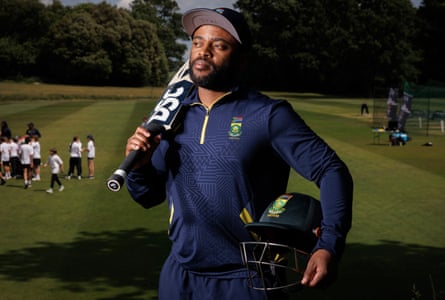
In his most recent Test innings, Bavuma scored 106 against Pakistan in January but over the past 18 months he has struggled with elbow and hamstring injuries. He insists he feels fit again, and scored an unbeaten 58 against Zimbabwe in a rain-affected friendly in Arundel last week, but concedes that the vast knowhow and depth of Australia will test his young team.
“When you assess their strengths, that experience is obvious. They’ve also played a lot and been successful in English conditions. Some of our guys still need to go through that. But that so-called inexperience from our side can also be a strength. The biggest thing with our guys is not to burden them with anything and keep encouraging them to have confidence in the way we’ve been doing things.”
Bavuma regards the last time that South Africa played Australia, in a series defeat in 2022-23, “as a turning point in my career. That tour was tough for the team. Personally, I managed to get runs but it was inconsequential. I’ve always been confident in terms of absorbing pressure, but that series made me understand that it’s important that you exert pressure and how you go about that. I realised it was a lot about fronting up.”
He was made Test captain after that humbling loss to Australia and his influence and his stature has grown considerably since then. But the responsibility bearing down on Bavuma, the little pioneer, is more intense than ever. “It doesn’t get easier,” he says wryly. “People keep pushing those levels of expectations and you’ve got to find a way to get mentally stronger. But I’m doing that and I’m still enjoying the game.”
In his only other Test at Lord’s, in 2017, Bavuma scored 59 in the first innings but England won by 211 runs. “My memories are not good from the team’s perspective as Moeen Ali bowled us out in the second innings. But this game against Australia at Lord’s is different. Remembering all that Lord’s meant to us in Langa, this is definitely one for me to enjoy and to embrace. It will be a highlight of my career.”

 8 hours ago
4
8 hours ago
4
